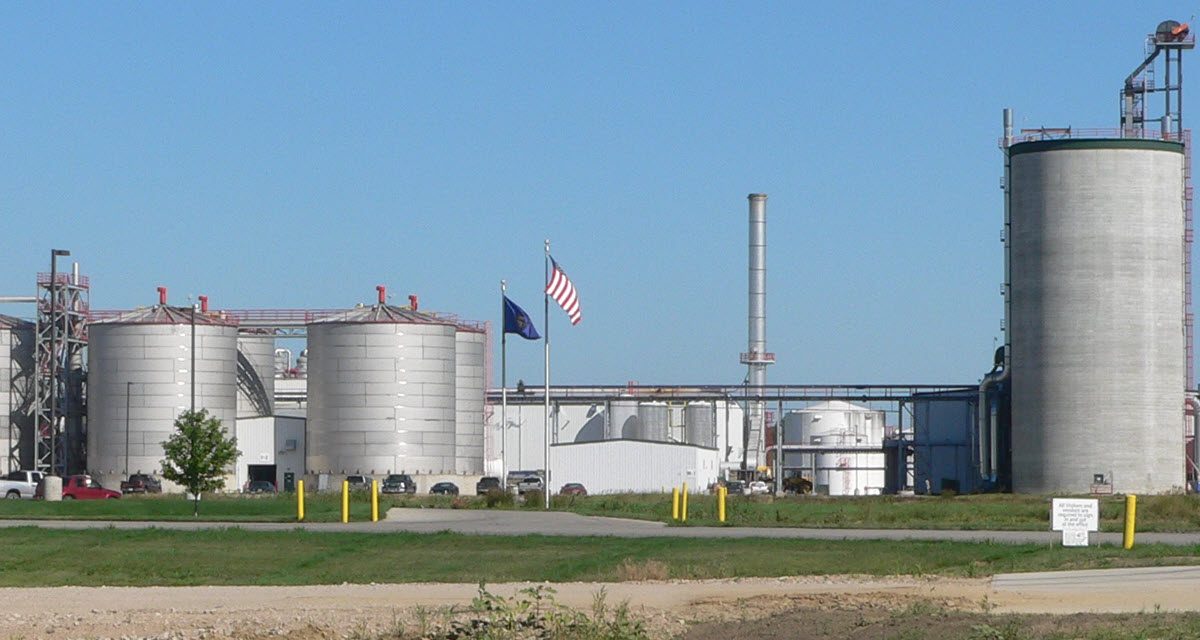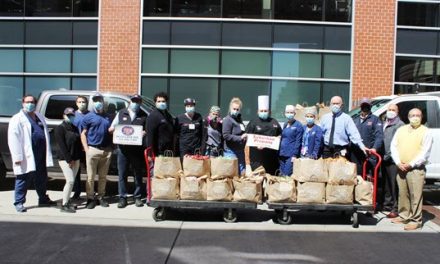EPA released the long-awaited final rule to set Renewable Fuel Standard (RFS) blending levels for 2021 and 2022. The solid 2022 blending level is in line with Congressional intent and the 2021 number was increased from the earlier proposal. However, in an unprecedented move, the EPA also reopened and reduced the 2020 RFS rule that was finalized in December of 2019.
IFRA
“IRFA appreciates the Biden EPA getting the RFS back on track in 2022 and increasing the 2021 blending target compared to the proposal,” said Iowa Renewable Fuels Association (IRFA) Executive Director Monte Shaw. “But we also cannot ignore that today’s final rule creates uncertainty. Any of these numbers that look good today could be revised downward in the future. But we’re going to plan for the best, and today, this rule means greater use of lower-cost biofuels to help save consumers money at the pump.”
While long expected, formal action was also taken to deny 72 unjustified RFS refinery exemptions, many dating back to the Trump Administration.
“The Biden EPA is to be commended for restoring sanity to the refinery exemption program,” said Shaw. “These exemptions have never been justified and were simply being used to illegally undermine the RFS. We are grateful this long nightmare is over.”
In a separate rule also released today, EPA addresses the D.C. Circuit Court 500 million gallon “remand.” The Court found the Obama EPA illegally reduced the 2016 conventional blend level by 500 million gallons and “remanded” the case back to EPA to restore those gallons. EPA plans to add half of those remanded gallons to the 2022 RFS level and says it will do the other half in 2023.
“For five years IRFA has been calling on EPA to address this remand and we give the Biden EPA credit for taking action, especially after four years of intransigence on this issue from the Trump EPA,” Shaw said.
The final rule also increases the biomass-based diesel category and advanced biofuel category to a total of 5.05 billion gallons in 2021 and 5.63 billion gallons for 2022.
“We are encouraged to see EPA recognizes the growth occurring in the biodiesel and renewable diesel markets,” Shaw said. “The RFS must keep up with the increased production capacity that is coming online. After all, Congress intended the RFS to be market moving, not just reactive.”
While the 2022 conventional biofuels blend level corresponds with the statutory 15 billion gallons, the rule sets the 2021 conventional level – traditionally filled by cornstarch-based ethanol – at 13.79 billion gallons, 1.2 billion gallons below the level set by Congress. The rule also reopens the finalized 2020 RFS rule to lower the conventional blend level by 2.5 billion gallons, setting it at 12.5 billion gallons.
ACE
American Coalition for Ethanol (ACE) CEO Brian Jennings issued the following reaction to EPA’s package of final actions:
“While we strongly object to the unnecessary retrospective cut EPA is making to 2020 volumes, we are pleased the Agency is upwardly revising the 2021 volumes to align more closely with actual consumption and upholding base conventional volume of 15 billion gallons for 2022, along with 250 million supplemental gallons to address the DC Circuit court order in 2017. ACE members are also thankful EPA is reining in the abusive use of SRE waivers pioneered under the last Administration.
“When taken as a whole, today’s actions begin to get the RFS back on track and fulfill Administrator Regan’s commitment to follow the law and science when it comes to this program. However, continued vigilance is required to undo prior and prevent future mismanagement of the RFS — the only tool at EPA’s disposal to replace expensive foreign fossil fuel with low-cost, low-carbon and homegrown biofuels such as ethanol. Given pump prices remain at record high levels and the need to decarbonize the transportation sector, it’s particularly important to leverage the program’s full potential.
“We encourage EPA to utilize the upcoming RFS ‘set’ rule for post-2022 volumes to make good on Administrator Regan’s statement that ‘biofuels will be part of the solution for climate change and lowering prices at the pump.’”
Clean Fuels
Clean Fuels supports EPA’s decision to deny pending small refinery exemptions and its consistent finding that the program benefits Americans without hardships for refiners.
“Clean Fuels and its members appreciate EPA Administrator Regan’s recognition that homegrown, clean fuels offer a better solution to high fuel prices stemming from high oil prices and supply shortages,” said Kurt Kovarik, vice president of federal affairs for Clean Fuels. “We support EPA’s efforts to get the Renewable Fuel Standard back on track and to finalize 2022 volumes as a jumping off point for future growth. We stand ready to work with the agency to move forward and set volumes for 2023 and beyond. And we encourage the agency to quickly finalize new feedstocks pathways, such as that for canola oil.”
“Biodiesel and renewable diesel are essential to keeping the U.S. economy moving right now, meeting more than 5 percent of the nation’s need for heavy duty transportation and shipping fuel. The clean fuels industry increased production and supply even during the economic emergency of the last few years, helping Americans save 4% on the cost of diesel fuel and all the other consumer items that rely on diesel fuel for shipping,” Kovarik added.
A recent study from the World Agricultural Economic and Environmental Service shows that U.S. biodiesel and renewable diesel production generates a 4% decrease in the price of diesel fuel.
Kovarik continued, “EPA’s denial of pending small refinery exemptions for 2019 through 2021 assures our industry that the volumes set today will be fully met, even with compliance flexibilities. This is an important first step in restoring integrity to the program.”
Today’s rule meets EPA’s consent decree with the U.S. Court of Appeals for the D.C. Circuit to finalize the 2021 and 2022 rules. EPA is currently taking comment on a proposed consent decree to finalize the 2023 RFS volumes and standards by April 2023.
API
The American Petroleum Institute (API) issued the following statement from Vice President of Downstream Policy Ron Chittim in response to the Environmental Protection Agency’s (EPA) release of the final 2020 – 2022 biofuel blending obligations under the Renewable Fuel Standard (RFS).
“Pushing aggressive biofuel blending mandates risks exacerbating current market challenges by placing additional pressures and restrictions on refiners and blenders. The final 2022 volumes exceed EPA’s own estimates of what the market can absorb and are likely to place additional pressure on refiners that are already running full throttle to keep pace with demand. The failure to establish a feasible and achievable 2022 standard in a timely fashion is yet another example of the disconnect between the administration’s rhetoric and the policies they are pursing.”









